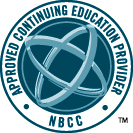
Innovations in Counseling

Grant-Writing 101
Writing a successful grant proposal is often essential to secure funding for research or direct service to benefit underserved minority populations. Join Sherry Allen, NBCC Foundation executive director, for this webinar and learn:
- How to find funding opportunities.
- Describe active coping and discuss its impact on African-American male behavior and assessments.
- How to determine if a funding opportunity is right for you.
- About the essential steps to a successful grant application.
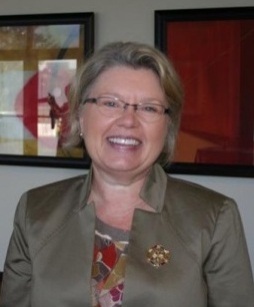
Presented by: Sherry L. Allen M.Ed., NCC, CCMHC, LPC, GPC
Sherry Allen is the executive director of the NBCC Foundation, Inc., leading the program development, fund development and board facilitation of the newest affiliate of the National Board for Certified Counselors. Prior to her current position, Ms. Allen was the president and CEO of Youth & Family Services Network (YFSN), where she facilitated and administered the delivery of training, technical assistance, fund development and advocacy support services to youth services agencies throughout the country. Through her agency work and private practice, she has provided trainings and consultation throughout the United States and Western Europe, with an emphasis on leadership, cultural competency, board development, grant development and nonprofit organizational development. Ms. Allen was an examination development content expert for the Grant Professionals Certification Institute, and has administered many federal grants of local, regional and national scope. She is a facilitator of processes and planning methods for both the Institute of Cultural Affairs and the National Coalition Building Institute. Ms. Allen is a National Certified Counselor (NCC) and a licensed professional counselor in Tennessee and North Carolina, and has practiced as an individual, couples and family counselor.
Q & ABecoming a Culturally Competent Counselor: A Process
Presented by Atsuko Seto and Sandra I. Lopez-Baez, in this session, participants will:
- Learn a brief history of the development of the multicultural counseling competencies and relevant research.
- Approach the competencies from a process-oriented perspective.
- Explore and reflect on their own cultural and unique individual backgrounds and the impact of these elements.
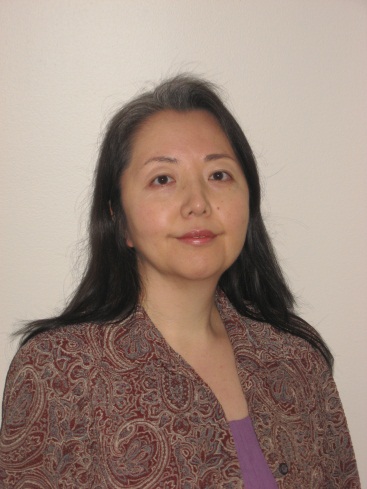
Atsuko Seto Ph.D., NCC, ACS, LPC
Atsuko Seto is an associate professor in the Department of Counselor Education at The College of New Jersey. She is the program coordinator of the educational specialist degree in marriage and family therapy program and the master’s in marriage, couple, and family counseling and therapy program, accredited by the Council for Accreditation of Counseling & Related Educational Programs (CACREP). Dr. Seto is a licensed professional counselor in New Jersey, a National Certified Counselor (NCC) and an Approved Clinical Supervisor (ACS). She holds a doctorate in counselor education from the University of Wyoming and a master's degree in counseling from Chadron State College, in Nebraska. Dr. Seto’s strong interest in multiculturalism and diversity in counseling began with her experience studying English as a second language (ESL) in the United States as an international student. Gaining insights into the potential impact of acculturative stressors, language barriers and race relations has fostered both her personal and professional growth while strengthening her commitment to lifelong learning.
At her clients’ request, Dr. Seto has provided counseling services to individuals and families in English and Japanese. Additionally, she has engaged in professional development at the global level. Dr. Seto assisted with the implementation of NBCC International’s Mental Health Facilitator (MHF) program in Japan, which was used to support survivors of the 2011 earthquake and tsunami. She has also traveled to Rwanda to learn about the current state of the country and efforts to meet the population’s mental health needs. Dr. Seto’s scholarly activities include publications and presentations in the areas of counseling Asians and Asian Americans, intercultural couples, experiential multicultural counseling activities, and faculty professional development. Her recent publications include a coedited book titled Women’s Retreat: Voices of Female Faculty in Higher Education.
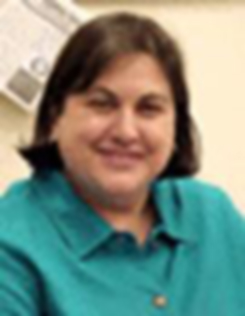
Sandra I. Lopez-Baez Ph.D., NCC, ACS, CCMHC, LPC-Chair
Dr. Lopez-Baez is a professor in the counseling and educational leadership programs at Montclair State University. Over the past 30 years, she has been a counselor educator and supervisor, practicing clinician, researcher and consultant. Her work has included undergraduate- and graduate-level teaching, as well as medical education, program development, research activities, consultation (cross-cultural), and counseling individuals, couples and groups in a private practice setting. Her research interests include diversity, multicultural issues, outcome measurement after "growth" experiences, and the neurobiology of connection related to discrimination. Dr. Lopez-Baez has been an active participant in national, regional and state professional associations, serving as president of both the Ohio Association for Multicultural Counseling and Development, and Counselors for Social Justice, a division of the American Counseling Association (ACA). She has published in peer-reviewed journals, and has delivered multiple presentations at regional, national and international conferences. Dr. Lopez-Baez is a National Certified Counselor (NCC), a Certified Clinical Mental Health Counselor (CCMHC) and an Approved Clinical Supervisor (ACS), as well as a licensed professional counselor in Ohio, Puerto Rico and Virginia. She is a member of ACA, the Association for Multicultural Counseling and Development (AMCD), the Association for Counselor Education and Supervision (ACES), and Chi Sigma Iota International Counseling Honor Society.
Q & AThe Humanness of Minority Clients
At the end of the session, participants will be able to:
- Comprehend basic philosophical influences on the counseling relationship.
- Identify fundamental principles in humanistic counseling.
- Understand how humanistic principles can be useful for working with minority clients.
- Consider biases and assumptions they assign to clients as a result of preconceived ideas and beliefs about a certain minority group.
- Discuss ways in which one can integrate humanistic principles into the counseling relationship.
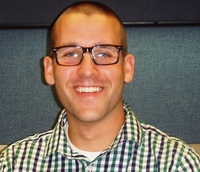
Presented by: Tyler Wilkinson Ph.D., NCC
Tyler Wilkinson holds a doctoral degree in counselor education and supervision from Auburn University, in Alabama. He is a National Certified Counselor (NCC), maintains a limited private practice and is an assistant professor in the Department of Counseling at Indiana University of Pennsylvania. Dr. Wilkinson is interested in incorporating humanistic principles into counseling practice, counselor education and supervision. His other research interests include best practices for using technology in counseling and counselor education, couples counseling, and counseling student development.
Q & AWorking With African-American Male Students in Schools
This session will help participants to:
- Understand environmental pressures that can exist for African-American male students.
- Examine interventions that can improve learning environments for African-American male students.
- Examine individual and group counseling methods that are effective when working with African-American male students.
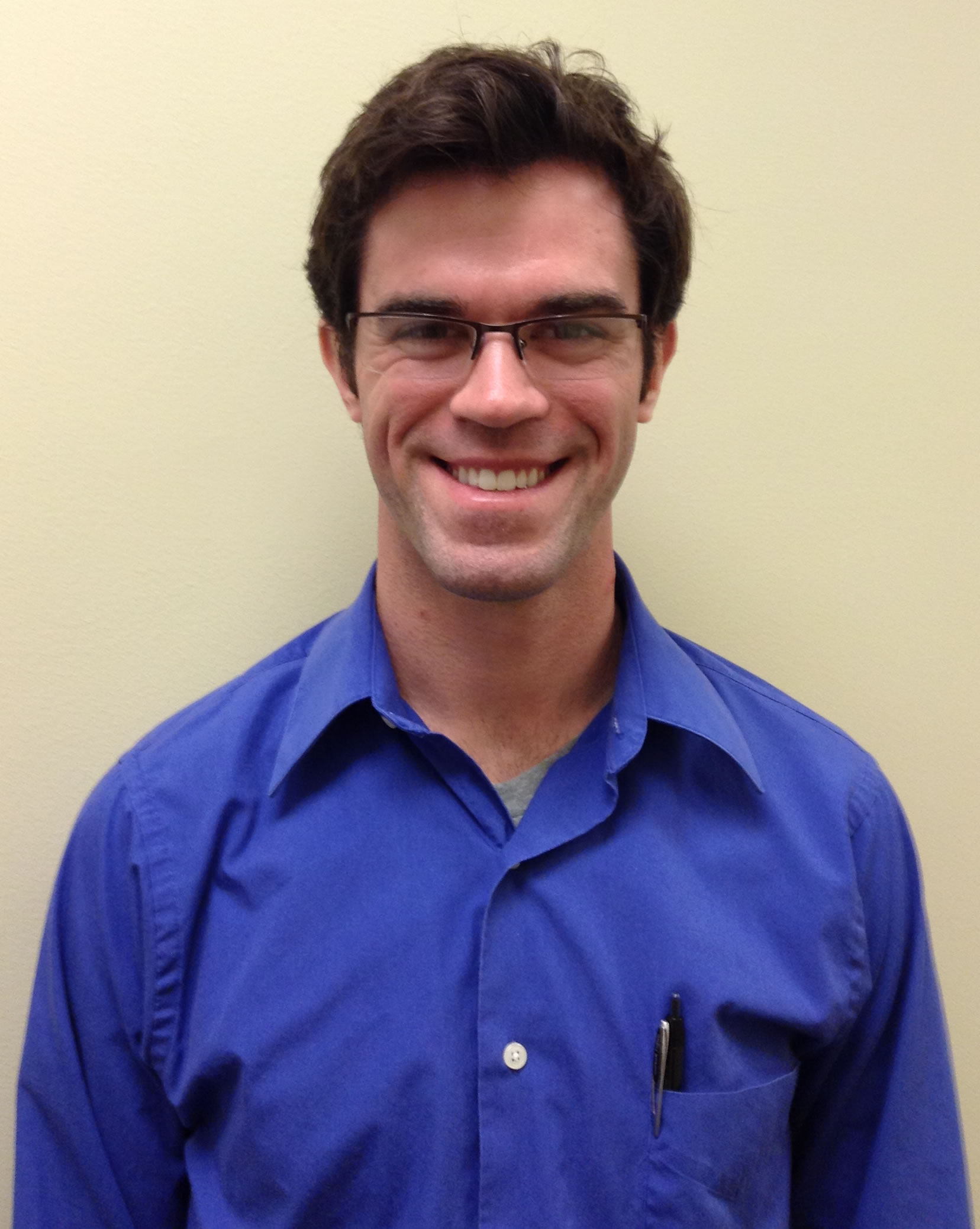
Presented by: Mark Eades M.A., LPCA, NCC
Mark Eades is a current doctoral student in the Department of Counseling and Educational Development at the University of North Carolina at Greensboro (UNCG) and holds a master’s degree in school counseling from Wake Forest University. He is a licensed school counselor and licensed professional counselor associate (LPCA) in North Carolina and is a National Certified Counselor (NCC). Mr. Eades enjoys working with students of all ages and has counseled students from kindergarten through graduate school in a variety of settings. He has a special interest in talking with students about multicultural considerations, family concerns, teacher-student relationships and career-personality matching.
Q & AArab-American Perspectives on Counseling
Presented by Tahani Dari and Shadin Atiyeh, this session will help participants to:
- Understand the diversity and shared values of Arab-American populations.
- Conduct studies effectively with Arab-American populations.
- Implement successful community-based interventions.
- Adapt traditional therapeutic approaches to work with Arab-American populations.
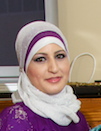
Tahani Dari M.A., LLPC, NCC
Tahani Dari holds a master's degree in school counseling from Eastern Michigan University. She is a National Certified Counselor and holds a limited counseling license from the state of Michigan. Ms. Dari is a proficient speaker of Arabic. She is currently serving as a school counselor and assessment coordinator for K–12 students and as a private practitioner working with a broad spectrum of issues, including career development, college advising, depression, anxiety, stress and trauma. Ms. Dari has experience in various community settings serving low-income families, immigrants and refugees, and working with women's issues.
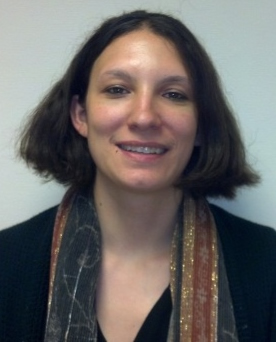
Shadin Atiyeh M.A., LLPC, NCC
Shadin Atiyeh holds a master's degree in community counseling from Eastern Michigan University. She is a National Certified Counselor and is a limited licensed counselor in the state of Michigan. Ms. Atiyeh speaks conversational Arabic, French and Spanish. She is currently working in private practice with a broad spectrum of issues, including trauma, depression, anxiety, stress, isolation and career development. She has experience working in various community agencies with survivors of domestic violence and sexual assault, immigrants and refugees, abused and neglected children, and homeless families.
Q & AMarketing Does It Apply to Counselors?
This session will:
- Focus on “marketability,” a popular buzzword used by business professionals.
- Define marketability.
- Explore 10 ways to enhance the marketability of counselors.
- Share resources for marketability and future projections in the area.
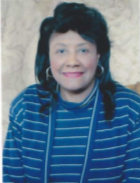
Presented by: Gloria Dansby-Giles Ed.D., NCC, NCSC, NCCC, ACS, LPC
Dr. Dansby-Giles is a professor of counselor education at Jackson State University. She is a National Certified Counselor (NCC), a National Certified School Counselor (NCSC), a National Certified Career Counselor (NCCC) and an Approved Clinical Supervisor (ACS). Dr. Dansby-Giles has served as southern regional vice president and ethics chair for the American School Counselor Association (ASCA). She has also served on the Mississippi Board of Examiners of Licensed Professional Counselors.
Q & ALeadership in the Counseling Profession: A Discussion Panel
Moderated by Dr. Michael Kocet, panelists Dr. Kristopher Goodrich and Dr. Shawn L. Spurgeon offer their views on the following discussion questions:
- How did you begin your involvement in leadership roles within the counseling profession, particularly the American Counseling Association (ACA) and its divisions?
- How have your leadership experiences impacted your professional identity and growth? What have been some challenges you have faced as a person of color/gay man as you have moved forward in leadership roles?
- What are your recommendations for the doctoral minority fellows as they pursue their own leadership paths within ACA, its divisions and beyond?
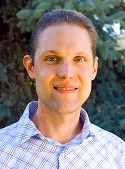
Kristopher Goodrich
Kristopher Goodrich is assistant professor of counselor education at the University of New Mexico. He graduated from Syracuse University in 2009 with a doctorate in counselor education and supervision, and has served in leadership capacities for ACA divisions and other counseling groups. Currently, Dr. Goodrich is the cochair of the LGBTQQIA (lesbian, gay, bisexual, transgender, queer, questioning, intersex and allies) Affirmative Counseling and Social Justice Committee of the Association for Lesbian, Gay, Bisexual & Transgender Issues in Counseling (ALGBTIC); chair of the Chapter Development Committee for Chi Sigma Iota (CSI); and cochair of the New Faculty Interest Network, an interest group of the Association for Counselor Education and Supervision (ACES).
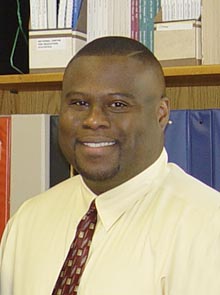
Shawn L. Spurgeon
Shawn L. Spurgeon is associate professor of counselor education at the University of Tennessee, Knoxville. He received his Ph.D. in counseling and counselor education in 2002 from the University of North Carolina at Greensboro. Dr. Spurgeon is currently the faculty advisor for the Upsilon Theta chapter of Chi Sigma Iota, a member of ACA’s 2014 Ethics Revision Task Force and serves on the editorial boards of the Journal of Counseling Research and Practice and the Journal of the Professional Counselor. He is president-elect for the Association for Assessment and Research in Counseling (AARC), past cochair of the ACA Ethics Committee, and past treasurer for both the Association for Assessment in Counseling and Education (AACE) and CSI. He is the first recipient of the Courtland C. Lee Multicultural Excellence Scholarship Award.
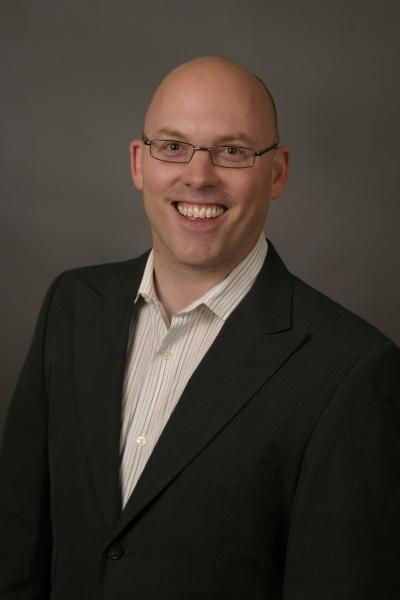
Michael M. Kocet, Ph.D., NCC, LMHC
Michael M. Kocet is associate professor and department chair of the Department of Counselor Education at Bridgewater State University. He is a licensed mental health counselor and National Certified Counselor (NCC). Dr. Kocet served as a member of the ACA Ethics Committee from 2001 to 2007 and chaired the ACA Ethics Code Revision Task Force from 2002 to 2005. He is past president of ALGBTIC and a former board member for the Association for Spiritual, Ethical, and Religious Values in Counseling (ASERVIC). He has presented at local, state and national conferences on counseling and student affairs and is sought after as a national speaker and consultant on ethical and LGBT issues in counseling. Dr. Kocet is a member of the NBCC MFP Advisory Council.
From Shaming to Sharing: Using Personal Privilege to Promote Cultural Empowerment and Advocacy
At the end of the session, participants will be able to:
- Explore various forms of cultural privilege.
- Identify the power dynamics of cultural privilege.
- Address emotional reactions to the power play of cultural privilege such as denial, anger, hostility, guilt, resistance, etc.
- Identify ways to neutralize emotional reactivity and work with personal privilege to promote cultural equality.

Presented by: Michael M. Kocet Ph.D., NCC, LMHC
Dr. Kocet is associate professor and student affairs program director of the Department of Counselor Education at Bridgewater State University. Dr. Kocet earned his Ph.D. in counselor education from the University of Arkansas and completed a graduate certificate in dispute resolution at the University of Massachusetts Boston. He is a licensed mental health counselor and a National Certified Counselor (NCC). His professional areas of interest include ethical issues in counseling; counseling gay, lesbian, bisexual and transgender clients; and grief counseling. He is the author of numerous journal articles and book chapters on ethics and diversity issues. Dr. Kocet served as a member of the American Counseling Association (ACA) Ethics Committee (2001-2007) and as chair of the ACA Ethics Code Revision Taskforce (2002-2005). He is past president of the Association for Lesbian, Gay, Bisexual, and Transgender Issues in Counseling (ALGBTIC). He has presented at local, state and national conferences on counseling and student affairs, and is sought as a national speaker and consultant on ethical issues in counseling.
Q & ACulturally Informed Substance Abuse Counseling
This session will:
- Explore the role of culture in conceptualizing and providing effective addictions counseling.
- Describe approaches for providing culturally competent addictions counseling for diverse populations.
- Identify different models of addictions counseling.

Presented by: Phillip Clarke Ph.D., NCC, LPC
Dr. Clarke is an assistant professor in the Department of Counseling at Wake Forest University, where he teaches courses on addictions and advanced counseling skills. Dr. Clarke is a National Certified Counselor (NCC) and a licensed professional counselor in the state of North Carolina. His research and writing interests include wellness and development, substance abuse, supervision and teaching, and individuals diagnosed with dementia and their caregivers. He currently provides individual and group counseling for clients living with dementia and their caregivers at Wake Forest Baptist Health.
Q & ANBCC Foundation has been approved by NBCC as an Approved Continuing Education Provider, ACEP No. 805. Programs that do not qualify for NBCC credit are clearly identified. NBCC Foundation is solely responsible for all aspects of the programs.
Each state sets its own requirements for licensure, including continuing education requirements to maintain licensure. Questions about CE requirements for state licensure should be directed to your state board. You can find their contact information on our state board directory.
